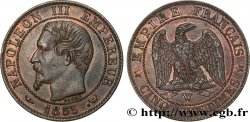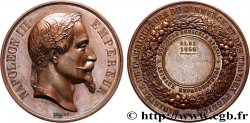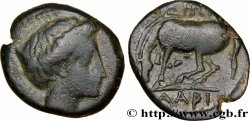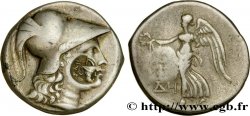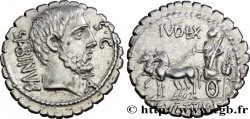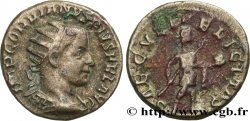fme_442624 - SECOND EMPIRE Médaille de pèlerinage
недоступный.
Товар уже продан в нашем интернет-магазине (2018)
Цена: : 100.00 €
Товар уже продан в нашем интернет-магазине (2018)
Цена: : 100.00 €
Тип Médaille de pèlerinage
Дата: 1858
Монетный двор / Город: 65 - Lourdes
Металл: bronze
Диаметр: 37 mm
Ориентация осей монеты: 12 h.
Гравер M.F. & P.
Вес: 21,69 g.
Век: Lisse
Комментарии о состоянии
Très bel exemplaire avec sa patine brune et brillante
Лицевая сторона
Аверс: легенда: JE SUIS L’IMMACULÉE - CONCEPTION.1858.
Аверс: описание: Vierge debout dans une mandorle polylobée.
Обратная сторона
Реверс: легенда: PÉLÉRINAGE DE LOURDES .
Реверс: Описание: Vue de la Grotte de Lourdes, avec une statue de la Vierge.
Комментарий
Les apparitions de Lourdes sont des apparitions mariales manifestées à une jeune fille âgée de quatorze ans. Celle-ci, Bernadette Soubirous, déclara avoir assisté à dix-huit apparitions d'une dame qui se présenta comme étant l'Immaculée Conception.
Ces apparitions s’étalèrent dans le temps (sur six mois), même si douze d'entre elles eurent lieu en l'espace d'une quinzaine de jours. Suscitant de vives polémiques, les apparitions, que seule la jeune fille vit, furent rapidement l'objet d'enquêtes et de contre-enquêtes. Le 18 janvier 1862, (soit quatre ans plus tard) au nom de toute l'Église, l'évêque du lieu, Mgr Laurence, publia un mandement par lequel il reconnaîssait officiellement les apparitions de Lourdes : « Nous sommes [...] convaincus que l'Apparition est surnaturelle et divine, et que, par conséquent, ce que Bernadette a vu, c'est la Très Sainte Vierge. » La Vierge y est depuis lors honorée sous le vocable « Notre-Dame de Lourdes »..
The apparitions of Lourdes are Marian apparitions manifested to a fourteen-year-old girl. This girl, Bernadette Soubirous, declared having witnessed eighteen apparitions of a woman who presented herself as the Immaculate Conception. These apparitions were spread out over time (over six months), although twelve of them took place within a fortnight. Provoking lively controversy, the apparitions, which only the young girl saw, quickly became the subject of investigations and counter-investigations. On January 18, 1862, (four years later) in the name of the whole Church, the local bishop, Mgr Laurence, published a mandate by which he officially recognized the apparitions of Lourdes: \\\"We are [...] convinced that the Apparition is supernatural and divine, and that, consequently, what Bernadette saw was the Most Holy Virgin.\\\" The Virgin has since been honored there under the name \\\"Our Lady of Lourdes.\\\"
Ces apparitions s’étalèrent dans le temps (sur six mois), même si douze d'entre elles eurent lieu en l'espace d'une quinzaine de jours. Suscitant de vives polémiques, les apparitions, que seule la jeune fille vit, furent rapidement l'objet d'enquêtes et de contre-enquêtes. Le 18 janvier 1862, (soit quatre ans plus tard) au nom de toute l'Église, l'évêque du lieu, Mgr Laurence, publia un mandement par lequel il reconnaîssait officiellement les apparitions de Lourdes : « Nous sommes [...] convaincus que l'Apparition est surnaturelle et divine, et que, par conséquent, ce que Bernadette a vu, c'est la Très Sainte Vierge. » La Vierge y est depuis lors honorée sous le vocable « Notre-Dame de Lourdes »..
The apparitions of Lourdes are Marian apparitions manifested to a fourteen-year-old girl. This girl, Bernadette Soubirous, declared having witnessed eighteen apparitions of a woman who presented herself as the Immaculate Conception. These apparitions were spread out over time (over six months), although twelve of them took place within a fortnight. Provoking lively controversy, the apparitions, which only the young girl saw, quickly became the subject of investigations and counter-investigations. On January 18, 1862, (four years later) in the name of the whole Church, the local bishop, Mgr Laurence, published a mandate by which he officially recognized the apparitions of Lourdes: \\\"We are [...] convinced that the Apparition is supernatural and divine, and that, consequently, what Bernadette saw was the Most Holy Virgin.\\\" The Virgin has since been honored there under the name \\\"Our Lady of Lourdes.\\\"







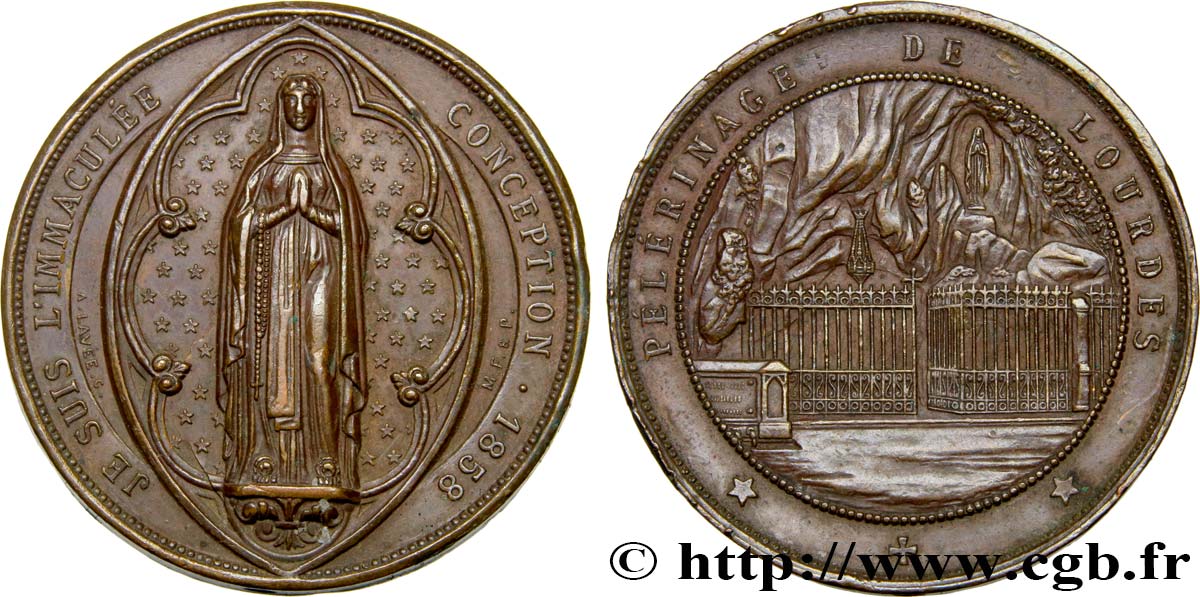
 Cообщить об ошибке
Cообщить об ошибке Распечатать страницу
Распечатать страницу Отправить мой выбор
Отправить мой выбор Задать вопрос
Задать вопрос Consign / sell
Consign / sell
 Информация
Информация